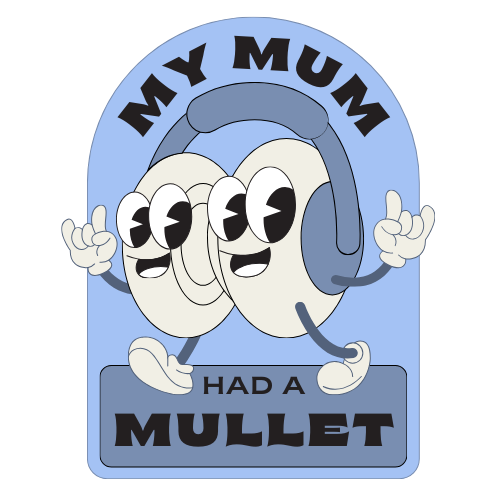Fiona Apple’s “When The Pawn…” turns 25
Fiona Apple’s sophomore album is a raw and unapologetic masterpiece of sensitivity and strength.
The original photo that became the album’s cover art, shot by David Goggin.
When the pawn hits the conflict he thinks like a king
What he knows throws the blows when he goes to the fight
And he’ll win the whole thing ‘fore he enters the ring
There’s no body to batter when your mind is your might
So when you go solo you hold your own hand
And remember that depth is the greatest of heights
And if you know where you stand then you know where to land
And if you fall it won’t matter ‘cuz you know that you’re right
So goes the title of Fiona Apple’s sophomore album, released 25 years ago today. The title / poem came as a result of a frustrating 1997 SPIN profile on Fiona Apple, and a whirlwind of misogynistic tabloid media that, famously, did not cut women any slack. Most people would have given up and caved, making the art they are told to make.
Fiona Apple is not most people. When asked about the line “there’s no body to batter when your mind is your might”, she explains, “I was thinking about a boxer physically going into the ring. My dad used to have fight nights all the time, so we’d seen a bunch of boxing matches. I used to always try to guess who was going to win just by the way they looked at each other. (…) It was so cool to be like, “I know that guy’s going to win when the bell rings because I saw that look in his eyes.” Really what I meant (…) is that who you are in your mind is something they can’t break. If you know who you are—if you have a connection to that very deep, dark place with that little light that goes on every time—then you’re OK.”
And she won. The album is her own molotov cocktail, explosive, angry, and protesting anything she doesn’t agree with.
Right off the bat, she tells the audience in the opening track On The Bound, “hell don’t know my fury”. She is out for blood. But where the track truly shines is in that second verse. She understands her overthinking tendencies (“I don’t know what I’m doing / don’t know, should I change my mind? I can’t decide, there’s too many variations to consider”). She effectively explains the coping cycles with “No thing I do don’t do no thing but bring me more to do”. She copes by writing music, but that makes her discover new feelings that she then has to process. Lastly, she understands that she is the only one digging herself into these holes: “It’s true I do imbue my blue unto myself, I make it bitter”.
“The album is her own molotov cocktail.”
Next is the arguably least popular track in the album, To Your Love. The instrumentals almost sound like a war drum, a call to battle, matching the defiant opening verse. But then the chorus comes along and explains her self-understanding and her (momentarily losing) fight against it with eloquence and grace: “Please forgive me for my distance, the pain is evident in my existence. Please forgive me for my distance, the shame is manifest in my resistance to your love”. She calls for empathy and understanding, “It’s hard enough even trying to be civil to myself”.
But it’s not at the cost of humour. When discussing the vaguely masturbatory language in Limp, she explains to Jenn Pelly that she “thought it was a takedown, but a funny takedown. (…) You get your point across a lot better with a little bit of humor. And so much of humor is just familiarity, being able to relate to something.” She doesn’t apologise for being pissed off, but blames those who poked the bear. Or, as she puts it, “You feel the beast I have within me, you wave the red flag, baby, you make it run” and “You fondle my trigger, then you blame my gun”.
And the in-your-face instrumentality just makes the piano ballad that is Love Ridden hit like a punch in the gut. It’s somewhat straightforward in the words, but the piano and strings drive home the deep sorrow of a relationship ending. “No, not ‘baby’ anymore / if I need you I’ll just use your simple name”. It’s the process of getting used to seeing someone in a different light, and calling yourself out on romanticising them. She turns a filler word like “baby” into a whole complex feeling.
“You get your point across a lot better with a little bit of humor.”
Paper Bag is, essentially, about when she was having a shit day and got in her car, saw what she thought was a dove, and it turned out to just be a paper bag. A situation that pours salt in the wound in a way that you can’t help but giggle at it. It’s a hypnotic, bouncy track about a failed search for hope and coping the hard way. A personal highlight is in the dialogue, “He said ‘it’s all in your head’, and I said ‘so is everything’, but he didn’t get it”. Pitchfork refers to this as “a sly reference to her own solipsism”, but I disagree. It’s about how a dismissive phrase like “it’s all in your head” is pointless, because the way we experience life is indeed all in our heads (a notion that would make George Berkley proud). So the phrase achieves nothing, but the man that Fiona Apple sings about can’t to understand this.
Paper Bag presents a tonal shift as the song progresses, from a song about hope to a song about a failing relationship. A Mistake does the same in a different context. Starting off in line with a wannabe rockstar’s hedonism, it evolves into a genuine cry for help against perfectionism. Later, in an article by the New Yorker, she states: “I say the right thing, but I look the wrong way, so they say something about the way I look”; “I look the right way, but I say the wrong thing, so they say something mean about what I said.” This song is a protest against that. (On a separate note, the line “I’m no good at math” healed me more than many lyrics have.)
What follows is the single Fast As You Can. She taunts the critics who brushed her off as just another crazy woman: “Oh darling, it’s so sweet you think you know how crazy / how crazy I am”. She is a young woman who struggles with multiple mental illnesses — the ideal target for the tyrant that was the late 90s and early 00s tabloid media. But in the second verse, she reminds us of her power: “my pretty mouth will frame the phrases that will disprove your faith in man”. She is much more than an angry pretty girl. The bridge is gripping, with its tempo change. Written in her car after an incident that reminded her of her rape, it alludes to how her mind blurs the lines between the past and present. “I’m tired of whys, choking on whys / Just need a little because”. It’s a tender bridge in a panicky, urgent track. It calls for structure, help, she wants to find the ground beneath her feet.
The Way Things Are, although it’s another song about love, it again makes me think about the unrelenting media: “I wouldn’t know what to do with another chance”, “I wouldn’t know what to say to a gentle voice”. She hasn’t known kindness — at least not from mainstream media — at this point in her career. In her own words about the song, she states, “Figuring that, statistically, there’s gotta be somebody out there (…) that has somebody in their life who appears outwardly to be very very good (…) but then when they’ve got you alone and really quietly they like whisper the worst things in the world to you and everybody thinks they’re the nicest person in the world… This song is… my big step in getting rid of that person… The only way that I could really deal with that was to write this song about… how great things are because this is exactly what I need.”
Get Gone is one of my personal favourites. The opening instrumental is cute and tender, but she soon reminds us who we’re dealing with: “how many times do I have to say to get away”. She howls, “It’s time the truth was out, that he don’t give a shit about me”. It’s a gorgeous line. Saddening and liberating all in one, she bluntly admits to herself the painful truth of not being cared for. But this realisation makes it easier to “up and go”, especially followed by the lines “I do know what’s good for me, and I’ve done what I could for you”. The second verse brings back the tender opening instrumental, presenting a more introspective and almost hesitant mindset: “I’ll idealise, then realise that there’s no sacrifice because the price is paid, and there’s nothing left to grieve”. But eventually, this introspection reminds herself that “he don’t give a shit about” her and demands that he “fuckin’ go”. It’s powerful, it’s contagious, it’s goosebump-inducing.
“She doesn’t even need to say those words, because we know.”
The closer, I Know, is one of her most beautiful and eloquent songs. Played in 6/4 time signature, the song draws you in with the sudden shift from Get Gone. This song is heartbreaking, showing me that while Fiona Apple is capable of so much more than living for someone else, she patiently waits for that someone to become better — a fate many women face. She told The New Yorker about how she’s been the other woman before — which is most likely what this song is about: “I can’t help you out while she’s still around”. She matter-of-factly states, “So be it, I’m your crowbar”, accepting that she’s just the other woman, someone to open new doors for this man. Ending the other verses with “I’ll know”, but not the last one, is like playing a joke on the audience. She doesn’t even need to say those words, because we know.
Fiona Apple was 22 when this album came out, with many songs being written well before this age. As cliché as the saying is, she truly was ahead of her time. She did not shrink in the face of the critics, but responded in the only way she could: through poetry. Her sharp and witty tongue has always been her greatest weapon, ever since she wrote letters to better argue against her parents. It’s an album that transcends time, it’s unapologetically sensitive and strong, she says her piece and, essentially, shuts everybody up.
Her defiance is even in the album cover: behind the poem is her smiling face, laughing in the face of anyone who dares to tear her down.

